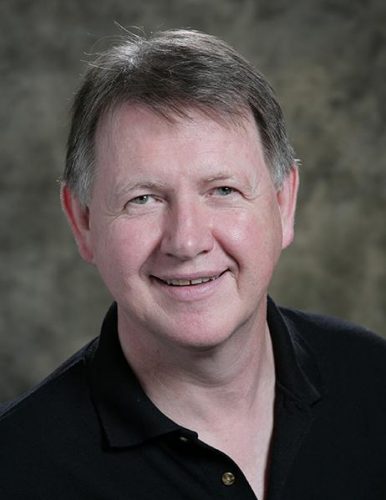Preserving Truthfulness
 A Letter to Pittsburgh Presbytery from
A Letter to Pittsburgh Presbytery fromPreserving Truthfulness
As we continue considering how the “Great Ends of the Church” will shape the church post-pandemic, today we land on a word that seems anything but forward-looking: Preservation. The fourth “Great End” of the church is “the preservation of the truth.” (Book of Order F-1.0304) In last week’s letter, I noted that the mention of “maintenance” in the third “Great End” conjures boredom – the same is doubtless true for “preservation.”
But “preservation” isn’t merely retrospective or passive. I treasure the “preserves” in my pantry that were canned by my Mom before she died. Any decent investment strategy seeks to “preserve” the corpus. We protect wild fauna and flora from extinction by allocating them a “preserve.”
Ronald Heifetz, a renowned expert on organizational change, argues that adaptive change – the kind of reconfiguration needed when we are facing unprecedented situations – always draws on the DNA of what has gone before. It may need to be rearranged or cleaned up, but the core identity must be preserved if new forms of life are to flourish within living systems.[i]
We can’t start the church from scratch all over again. Whatever the church of Jesus looks like post-pandemic, it will bear the same DNA that has marked it everywhere since its inception. Its preservation is essential.
What is the “truth” that the church must always preserve? Most foundationally, it is Jesus himself, who is the personification of truth. (John 14:6)
The Jesus program is not a code of ideas, but a way of living. That is why the earliest church was called “The Way.” The truth we are called to preserve is less about ideas than about actions.
Today, what is “true” is hotly contested along politicized fault lines. One side calls the 2020 presidential election “the Big Steal,” claiming that its outcome was determined by malevolent forces of deception. The other side calls that narrative “the Big Lie,” citing the absence of real evidence that the election was corrupt.
This contest of what is true has even higher stakes with the pandemic. Is COVID real? If so, is it really all that bad? Do the vaccines really work against its spread, or are they spreading something much worse?
I have heard enough from both sides of these political fault lines to believe that most of those on each side are convinced that they are standing for the truth. Of course, both can’t be right. How can we tell the difference? Each side cites evidence meant to prove the truth of its claims. Is that all that “truth” is, in the end: one’s sincere beliefs? Does the quality of adduced evidence really matter?
The church points to truth less in terms of “what” than “whom.” It’s less about “what” you believe than about “whom” you trust and follow. And here we begin to gain some clarity.
Do the people whose claims shape our convictions demonstrate humility, gentleness, openness, and generosity to those who differ?
According to the Bible, the essence of our primeval parents’ sin was that they sought to know what only God knows. Men and women ever since have yearned for special insider knowledge, to know what is really going on when everyone else is in the dark. That is the root of the New Testament world’s most deadly heresy, Gnosticism, whose proponents claimed to have special knowledge that was unavailable to the rest of the world.
Truth, as the Bible teaches it, is found not in conspiracy theories, but in broad daylight. Jesus is the light of the world, not its shadow-master.
Who to believe? Believe the one who is an open book, who speaks plainly about things that can be readily seen and tested. Believe the one who is open to being changed as new light emerges. In a word, believe the science, not speculation.
James tells us to trust the wisdom of those who speak gently, who welcome correction, who have no hidden agendas. I have found this to be unfailingly good counsel when I have had to decide between competing truth claims. Follow the gentle voice, the tender heart, the teachable spirit, the open mind.
This is what we are called to preserve – truthfulness that is teachable and open. The search for insider knowledge or dogmatic certainty moves us away from rather than toward God.
A thriving post-pandemic church will be more attentive to genuine science, not less. It will be more inclined to consider than to reject viewpoints different from its own. It will speak more softly, it will learn more gladly. It will preserve truth by embracing that which is open, just, kind, and good. In doing so, it will have something powerful to teach a world that is caught up in an impossible tug-of-war of competing truth claims.
Committed to truthfulness,

[i] The Practice of Adaptive Leadership, pp. 14-17.
